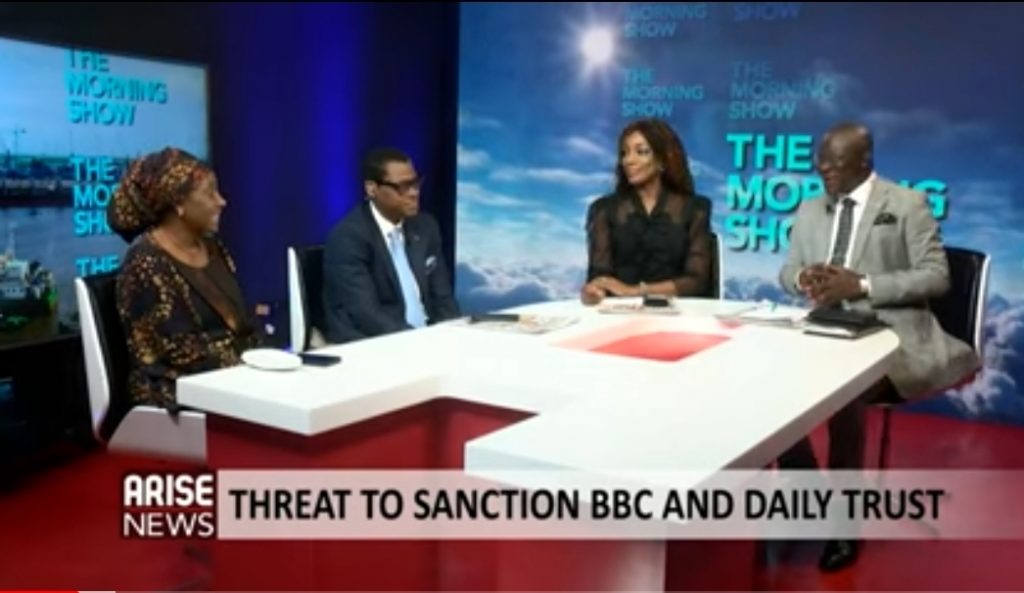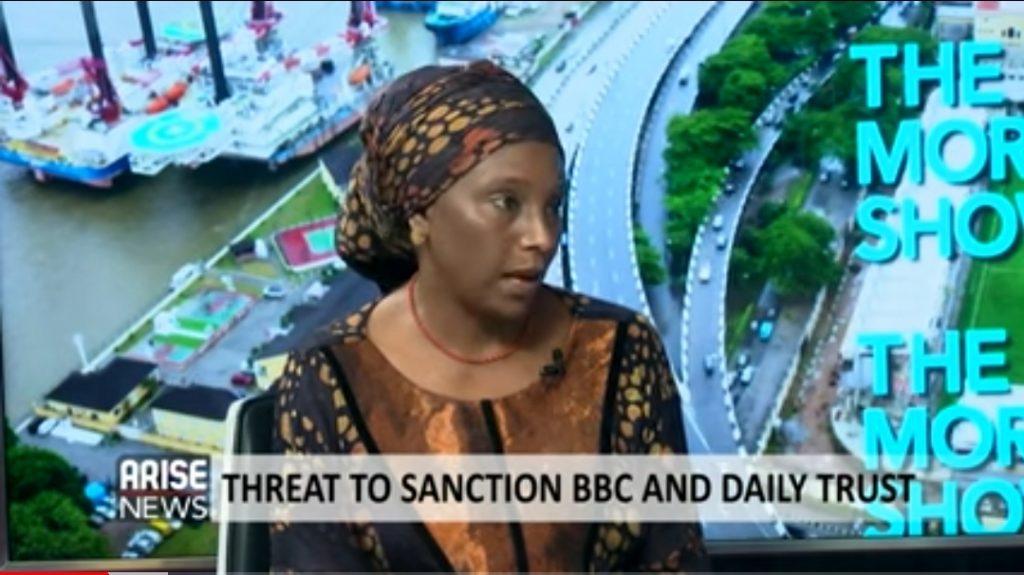Etim Ekpimah
Media titan and Chief Executive Officer of RadioNow, Kadaria Ahmed, has said that both the Federal and the state governments know where the terrorists are.
She added that the inability of the government to deal with the terrorist groups has nothing to do with the lack of knowledge but incompetence.
Ahmed was speaking with AriseTV on the “Threat by the Minister of Information and Culture, Lai Mohammed to sanction the BBC and the Daily Trust TV” on Wednesday morning.
She said: “If, for example, we all thought that the government did not know where these guys are, then an interview like this might be oh! now u are exposing, that the government knows where they are, not just those two that made it to the documentary, virtually every terror group that is operating, especially in the North West, we know exactly where they are.
“The inability of the government to deal with them has nothing to do with the lack of knowledge, it has everything to do with the incompetence. So, at that point, you might ask, could we have told our story, or I have heard people say to me, the ethnic dimension of the problem was not known until this documentary was done.”
Ahmed added that the Buhari-led Federal Government has failed woefully in the areas of security, especially in the North West.
“They (Nigerians) have already been badly let down by the Mohummadu Buhari government, which has failed woefully to do its job that you and I know; it is a total failure when it comes to the security,” she said.
On the move by the Minister of Information and Culture, Lai Mohammed, to sanction the BBC and the Daily Trust TV, Ahmed blamed the international press for leading double standard.
She noted that there are so many terrorists and domestic criminals that the international media would not portray on their international televisions. Ahmed added that in America people go to shoot and begin shooting school children, yet the issues are sparsely reported on international media.
Ahmed also criticised the BBC for doing documentaries on those who the already traumatised Nigerians thought were invincible being shown on the international station bragging.
She said: “You are saying in addition to dealing with the trauma of knowing that their country is not safe and the government whose primary responsibility is the provision of security which has failed, are now dealing with that fear already; they are not moving around businesses, they have been traumatised, and now they have the additional fear of understanding fully through an international brand the people terrorising them are not invincible.”
Ahmed stated that she does not support sanctions, adding that the option Mohammed has, if he genuinely feels aggrieved, was to do what the public would do in the United Kingdom (UK), which entails reporting the issue to Ofcom.
“I don’t believe in sanctions; I feel overall on the balance between the media that is absolutely free and having one that is muzzled – it serves the public better if you don’t have any sort of regulation. Definitely, there is a need for us to self-regulate, which is why I feel strongly and come out sometimes to talk about this thing we need to self-regulate. Everywhere in the world, is self-regulation even in South Africa, the media is self-regulated.
“We do have a constitution that is significant and we have a responsibility to Nigeria to do this job and do it well,” she stated.
According to her, the country has failed young people. She narrated the story of an Italian man killing a Nigerian (Polycarp Ogochukwu) on the street of Italy with people’s reactions being flimsy.
She added: “There is a general refusal to accept Nigerians are humans. We are badly treated and dehumanised internationally.

“But there is a part of us that has to take responsibility for that treatment. We have refused to fix our homes; we really should not have had people running to other places because life here is hell.
“We have everything it takes to build our communities. Why are we not doing it? The whole thing about the balance of power is in everything, it is in the economy, in trade, in everything that we do; it is not just the media.
“On the issue that we have within the continent: I have advocated that we should have a new Pan Africa movement.
“With this issue of insecurity, for example, think about it. When President Buhari goes for security meetings, he is sitting there with the Minister of Defence and other military people in charge. Where is the minister of environment and education?
“These are all the vulnerability that feeds into insecurity. Why don’t we have a pan Africa policy about insecurity? The arms we are getting are from the Central African Republic down to Libya; there is a problem in Mali, too. Why are we trying to deal with this issue in isolation from each other?”

